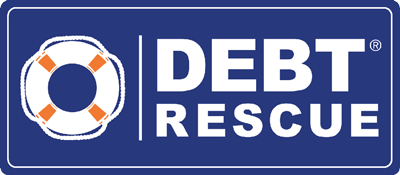Financial Hardship is a state of affairs when you simply can't afford to repay your debts. Often, financial hardship is only temporary and can be caused by a change in income, a breakdown in relationship or an injury or illness. If it looks as though your circumstances won't improve, your state of Financial Hardship changes to a state of Personal Insolvency.
The Signs of Financial Hardship
The most obvious sign of Financial Hardship is the inability to repay your debts. You may suddenly realise you aren't earning enough money to pay all your expenses. Or it might be something that has happened over time with rising interest and credit card levels slowly getting out of control.
Some other signs indicating you are on your way to financial hardship include:
- Using Credit Cards. If you are relying on your credit card to pay for essential expenses like petrol and groceries, this is a sign you are in trouble.
- Applying for small cash loans. You are falling into Financial Hardship if you are relying on payday loans in order to make repayments on existing debts.
- Making Sacrifices. Not buying an expensive TV because you can't afford one is a smart budgeting decision. But skipping lunch because you can't afford to buy food is a sacrifice you shouldn't have to make.
Financial Hardship Arrangements
Most financial institutions and service providers, like banks, phone companies and electricity providers, have hardship arrangements available. A Financial hardship arrangement differs depending on the company and the debt, but is generally a short term agreement which makes your debt more manageable. An example of a financial hardship arrangement could be paying interest only, paying principle only or paying off small amounts of your debt over time. Anyone is able to apply for a hardship arrangement if you are struggling to pay the debt.
Applying for Financial Hardship Arrangements
People who are struggling with their debts are often too frightened to talk to their creditor because they are afraid their creditor will force them into Bankruptcy. While it is true, if you are unable to repay a debt you owe a creditor could force you into Bankruptcy, creditors often try to avoid this scenario as it doesn't bide well for them. If a creditor forced you into bankruptcy, they would lose a valued client and may not recover any money once you are bankrupt. If you have only just fallen behind or if your hardship is temporary, your creditor will be more inclined to accept a hardship arrangement until you are back on your feet.
To apply for Financial hardship, simply call your creditor and let them know you are struggling to make your repayments. The operator you are speaking to might be able to discuss an arrangement with you or you could be transferred to a Hardship Department to give further details of your situation. Your creditor would have experienced this more than you can imagine, so while it is normal to feel nervous or even embarrassed, you will find your creditor is more than happy to try to accommodate you.
What if a Financial Hardship Arrangement Doesn't Work?
A financial hardship arrangement is usually only temporary and could last anywhere from 3 months to a year or more. If, at the end of your financial hardship arrangement you find you are still struggling with your repayments, you can call your creditor and discuss another hardship arrangement with them. If it looks as though your situation won't change in the future and you will continue to struggle with your debts for the foreseeable future, you may have taken the next step from financial hardship to personal insolvency.
If your situation won't improve in the near future, your creditor may not negotiate a hardship arrangement with you. If this is the case, you may have to look at other debt relief options, such as a Part 9 Debt Agreement. A Part 9 Debt Agreement is an agreement between you and all your creditors outlining a new repayment arrangement, one which you can afford. A debt Agreement will reduce the overall amount of debt you owe while pausing all your interest and fees on those debts, making your repayments very affordable.
Financial Hardship Action Plan
If you are in financial hardship, act now. Pick up the phone and call your creditors to see what they can do to help you. You can also read our blog about how to ask your creditors for help.
If you feel your debts are out of control and you don't know what you can do to get a hold of them again, call us on 1800 003 328. Our professional debt consultants can walk you through your situation and suggest ways to get out of debt.
-137x60px.png)




